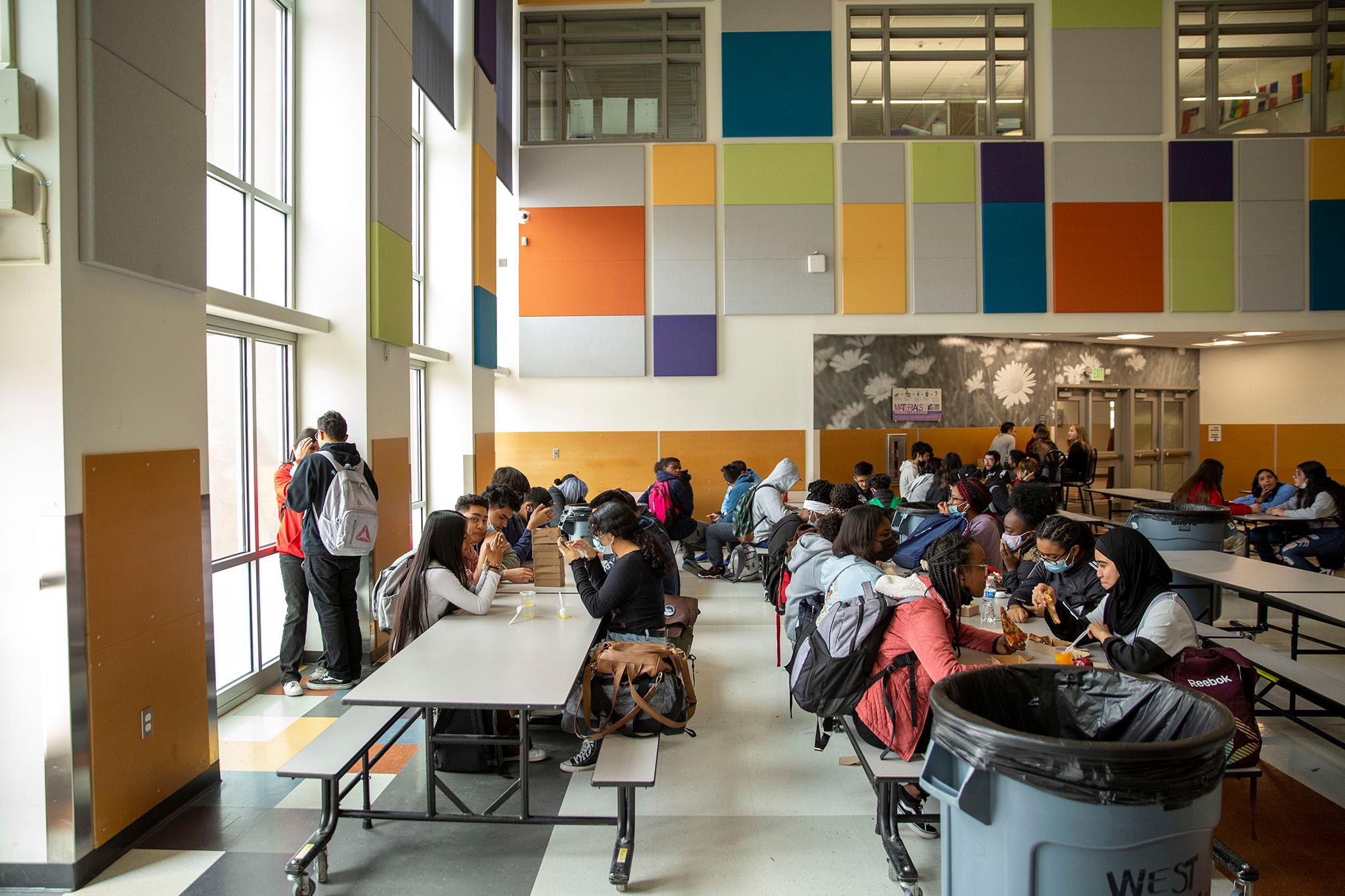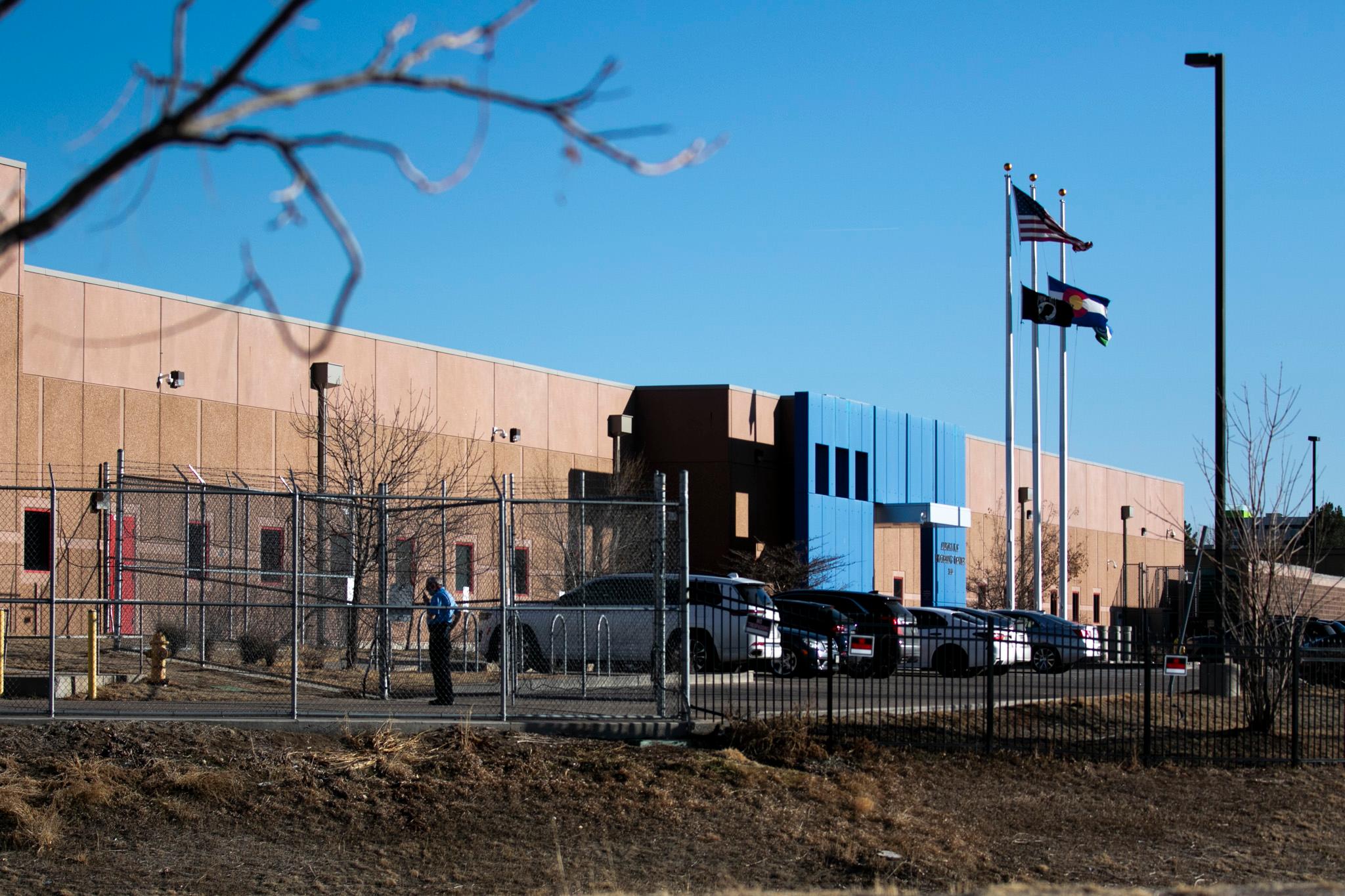
In 2022, Colorado voters said yes to free school meals for all.
They also said yes to money for schools to purchase locally grown, healthy food. And, they said yes to raising cafeteria workers wages.
It turns out that there isn’t enough money for all three elements of Proposition FF or even the first one, with lawmakers Monday casting doubt on the future of raising wages or buying healthy, local produce.
“It looks like it's (the program) going to be much, much more expensive than you or the voters anticipated,” chief legislative analyst Amanda Bickel told the legislature’s joint budget committee Monday before delivering the gloomy details.
Locally grown food and the wage hike were supposed to go into effect next year. On Monday, the committee voted to draft a bill delaying their implementation a year. They also voted to make the wage hike subject to “available appropriations.” Given huge pressures on the state budget, it’s unclear if the wage hike would ever happen.
“A delay in funding for (Healthy School Meals for All) grant programs for increased worker wages would devastate the kitchen staff who are working tirelessly to feed our children,” said Zander Kaschub, president of JESPA, the union for the Jefferson County School District’s support professionals.
He said the overwhelming popularity of the program should be driving investment into healthy food programs especially because workers are overseeing a massive increase in meals they serve.
“Delaying the funding for wages is wrong and will increase burnout in an already burnt out profession,” he said.
Local food producers, too, have pushed back against a delay. Some farmers have already planted crops, expecting schools will have the money to buy them next fall. Harrison Topp with Topp Fruits in Hotchkiss sells peaches, apples and pears to buyers who make contracts with schools.
“Two of our big buyers were really gearing up anticipating funds from the schools to be able to do more local procurement and we're building their capacity and their infrastructure and making plans and hiring to prepare for the season,” he said.
A recent voter survey on this budget shortfall shows that the locally grown food portion of the measure had the largest support.
Even with the delay, lawmakers must still plug a $24 million shortfall to pay for meals for students this year and an estimated $27 million next year.
How was the measure supposed to work?
Reducing tax deductions for households earning over $300,000 dollars is expected to generate $100 million a year. Costs for the entire program appear to be more like $150 million. Revenue seems to be on track but financial analysts said they won’t know for sure until taxes are filed this spring and amended in the fall.
There are two main reasons for the budget shortfall. One is that more students than anticipated are eating the free meals. The state estimated there would be a 25 percent increase. Instead, breakfast is up 35 percent and lunch is up 31 percent. The largest increase is in the category of students who typically pay.
Officials estimated the consumer price index – or the inflation rate would be about 3.5 percent. Currently, it’s 7.5 percent so it’s costing the state more to reimburse schools.
Lawmakers and hunger advocates are happy the central premise of the program is a huge success. It helped eliminate stigma in the lunch line because everyone eats for free – and it’s saving families money at a time of high inflation.
“It's really played a critical role in supporting families who are struggling to raise kids,” said Marc Jacobson, CEO of Hunger Free Colorado, which helped develop the ballot measure. “This saves families up to $1,250 per child each year, really making sure they're not having to make decisions about choosing between food and covering other household expenses.”
Jacobson said all elements of the bill were meant to work together. More kids would eat. The food would be nutritious, often-locally grown food that supports the state’s agriculture economy. This fresh food requires more hands to prepare than frozen pizza. Hence the wage hike for cafeteria workers.
Some school districts already serve a lot of locally grown and fresh food. But it doesn’t happen everywhere or all the time. Rep. Emily Sirota recounted a meal her son is sometimes served called a “walking taco” – a bag of Doritos or Fritos with cheese and meat poured in it. Sirota would like to maintain funding for the handful of pilot programs already underway that help some school districts buy local, fresh produce.
“The feeding of kids feels important and not feeding them garbage feels extra important.”
But it looks like there won’t be money for that on a large scale at least for now.
Budget committee members want the governor’s office and other departments to search in the couch cushions. They expressed frustration that the measure went to voters with the belief that there would be money to pay for everything.
“At that time there were tons and tons of analyses that were done that said this is not penciling out, the math doesn’t work, and nobody listened and so here we are,” said Sen. Rachel Zenzinger.
Part of the problem now is a federal rule change this year has caused lots of uncertainties about exactly how much money the program will cost the state. The committee approved funds for the state department of education to contract with specialists to determine how Colorado can draw down as many federal dollars as possible to reimburse school lunches for students in poverty.
To make the program sustainable long term, the department is considering other ideas like better ways to make sure families fill out the free and reduced-price lunch forms. There doesn’t seem to be an appetite among lawmakers to re-examine who qualifies for free meals.
“They need to come up with a plan because they can't put this much stress on the general fund budget of the state,” said Sen. Barbara Kirkmeyer.
Until that happens, state lawmakers have a big budget hole to plug
There was no decision Monday on where to find $24 million. There could be a battle over that – the governor’s office has proposed the education fund and some committee members are adamantly opposed.
Budget chair Rep. Shannon Bird said delaying grants for local food purchases and the wage hike is “incredibly disappointing.”
“We want to feed all the kids and feed them in a healthful way with locally grown food that benefits Colorado farmers and great for our local economy,” she said. “I think that's all great, but it looks like we’d probably need to go back to voters and ask for more money.”









